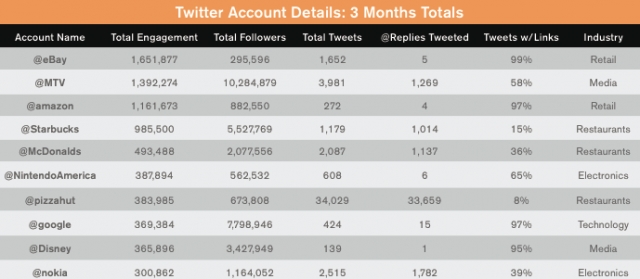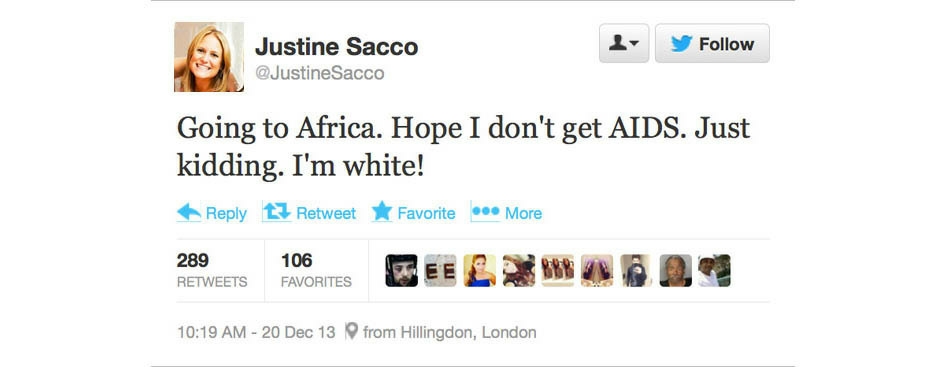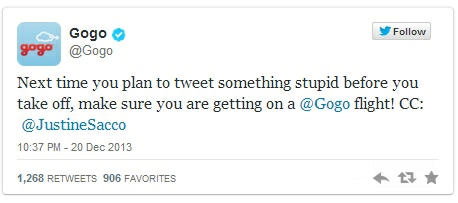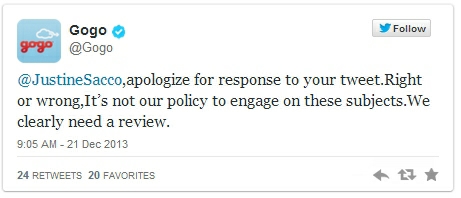San Franciso Occupy Movement = Kristallnacht?
Tom Perkins, founder of investment firm Kleiner Perkins Caufield & Byers, has apologized for comparing the Occupy movement to Kristallnacht. In a letter titled "Progressive Kristallnacht Coming?" published in the Wall Street Journal, Perkins writes,
"I would call attention to the parallels of Nazi Germany to its war on its 'one percent,' namely its Jews, to the progressive war on the American one percent, namely the 'rich.'"
This story reminds me of when, last year, AIG's CEO said that criticism about the company's bonuses is "just as bad" as lynchings in the Deep South.
In an interview with Bloomberg Television, Perkins apologized:
"I'd deeply apologize to you and anyone who has mistaken my reference to Kristallnacht as a sign of overt or latent anti-Semitism. This is not the case."
Discussion Starters:
- In what ways is Perkins' comparison fair, and in what ways is it not?
- Try to relate to Perkins' frustration. What background information is important for us to understand?
- How do you assess Perkins' apology in the Bloomberg interview? What is effective, and what could be improved in his message?
President Obama's State of the Union
Yesterday, President Obama delivered the State of the Union address.
A Wall Street Journal graphic summarizes the 86 times the President's speech was interrupted by applause. The winning comments were about a military officer who almost lost his life in Afghanistan and about equal pay for women.
Although the graphic headline reads, "How the President's Speech Was Received," the reaction represents only those listening to the address in person.
Discussion Starters:
- How do you think the general population might have reacted differently than the in-person audience did? What specific parts of the speech might have received less applause?
- A former student emailed me: "Don't these speeches seem to lack any structure?" Do you agree? If so, what can politicans do differently?
- What are the strongest and weakest parts of the President's speech?
Goldman Parody Turns Into a Book
Here's the first parody Twitter feed turned into a book: @GSElevator, quips presumably heard on an elevator at Goldman Sachs.
Under the title "Straight to Hell: True Tales of Deviance and Excess in the World of Investment Banking," the anonymous author, according to the publisher, "will offer stories from his career in banking that capture the true character and nature of Wall Street culture today-a world far more abhorrent and way more entertaining than people can imagine."
In emails to the New York Times, the author ("Mr. Stone") described his interest in writing a book:
"These are stories that I have been collecting over the course of my experiences in banking-events that have been so outrageous and funny, that I thought that one day they might be worth sharing.
"Unlike other books that may be viewed similarly, this is not a whistle-blower scenario or an indictment or assault on a specific firm.
"My aim is to showcase and illuminate the true culture of Wall Street as I have experienced it, and write a book that is not only very funny and entertaining, but also, insightful and substantive."
Although the author has revealed his identify to his publisher, he has not identified himself publicly. People wonder whether he currently works at Goldman.
UPDATE: The author has been discovered. He's a bond trader in Texas who had a job offer from Goldman at some point but never worked for the company.
Discussion Starters:
- If the author does work at Goldman and this became known, how do you think his employer would react? Read more of his tweets to get a better idea of what he's writing. Should he be fired?
- Read about Greg Smith, who wrote an op-ed about his experience at Goldman. How are these situations similar-and different?
OfficeMax Apologizes for Insensitive Letter Address
A promotional letter from OfficeMax identified a customer by name and a line under it: "Daughter Killed in a Car Crash." The Seays' daughter, 17 years old, was killed in a car accident last year, so the information is accurate, but you might imagine how upset the family was to read such an address.
When Seay contacted OfficeMax's call center, a manager denied that he received a letter with that address. Later, OfficeMax told the LA Times that the mistake "is a result of a mailing list rented through a third-party provider," but the company is still trying to sort out how this happened.
At this point, Seay is asking for an apology from the CEO and an explanation of how this happened. He said to the LA Times, "Why do they have that? What do they need that for? How she died, when she died? It's not really personal, but looking at them, it is. That's not something they would ever need."
Discussion Starters:
- How do you think this happened? Who is responsible?
- What should OfficeMax do now? Do you think an apology from the CEO is appropriate? One writer noted that no one from the company called the family personally to apologize. Should someone? If so, who?
Big Brands Use Few @Replies
A new Simply Measured study shows that top brands are still reluctant to engage customers on Twitter. In the fourth quarter of 2013, 98 of the 100 largest global brands tweeted every day, with the average company tweeting 12 times each day. However, @replies trailed.
Only 46% of these companies sent one or more @replies each day. Although companies may interact one-on-one with people via direct messages on Twitter, which Simply Measured has no way of tracking, the low percentage makes us wonder how well companies are engaging customers online.
Pizza Hut leads the way, representing almost half of the 68,000 @replies sent from the entire top 100.
Of course, this is only one metric of an engaged brand on Twitter.
Discussion Starters:
- How would you explain the high level of activity on Twitter but relatively few @replies?
- Do individual (one-on-one) interactions matter? Is it worth the time spent?
- What is your own experience interacting one-on-one with brands on Twitter? What examples can you share of @replies or direct messages?
Target's Latest Communication with Customers
Target had to take some responsibility for the security breach that affected millions of customers. A New York Times investigation reported that, "cybersecurity and credit experts and consumers shows that Target's system was particularly vulnerable to attack. It was remarkably open, experts say, which enabled hackers to wander from system to system, scooping up batches of information."
This is the latest email to customers. Download the email. See previous messages.
Discussion Starters:
- Assess Target's email in terms of audience perspective, organization, content, word choice, and so on. What works well, and what could be improved?
- Write another communication for Target-one that would have been sent in December when the breach was first discovered.
Are We More Social Today?
Studies of people in public spaces show that we may be more social today, despite hypotheses about technology pulling us apart. The Street Life Project in the 1960s and 70s photographed and filmed people in places, such as Bryant Park in New York City, to track how they sat, stood, and interacted with others. At the time, the goal was part of a city planning effort to improve public spaces.
Between 2008 and 2010, a University of Pennsylvania research team continued this work by filming people outside the Metropolitan Museum of Art. They coded 38 hours of footage based on sex, group size, loitering behavior, and phone use. The team found only 3% of adults on cell phones. As lead researcher Keith Hampton says,
"In the busiest public spaces, where there are a lot of groups, like this kind of public space, it's like 3 percent. Three percent. I can't even see someone on a cellphone right now, but yet how many times have you seen a story that says,'People on cellphones in public spaces is rude, it's creating all sorts of problems, people are walking into traffic.' I mean, we really have a strong sense that it's everywhere."
Hampton's research also found that people weren't talking to avoid contact with people but rather to kill time waiting for someone; the people on phones were alone. Twenty-four percent of people were alone on the steps, compared to 32% in the 1970s studies of the same spot. These findings support Hampton's other work about whether technology has made us more alone.
A New York Times Magazine piece provides a still of the work:
Discussion Starters:
- What's your view of these findings? In what ways do they surprise you-or not?
- What are some possible limitations of the study in drawing conclusions about how technology has affected us?
- The research also found that women are out in public today more than they were 40 years ago. What could explain this shift?
- In what ways has technology made you either more social or more alone?
McDonald's: America's Most Hated Company?
 McDonald's, which didn't make last year's list, tops this year's list of the Most Hated Companies in America. 24WallStreet.com published the list, although it's unclear how the results are determined. The website theorizes that the company's popularity slipped because of the controversy over low-wage workers and the company's low revenue growth.
McDonald's, which didn't make last year's list, tops this year's list of the Most Hated Companies in America. 24WallStreet.com published the list, although it's unclear how the results are determined. The website theorizes that the company's popularity slipped because of the controversy over low-wage workers and the company's low revenue growth.
On the rest of the list, we see some other familiar names in the BizCom in the News repository:
1. McDonald's
2. Abercrombie & Fitch
3. Electronic Arts
4. Sears Holdings
5. Dish Network
6. Walmart
7. JPMorgan Chase
8. Lululemon
9. BlackBerry
10. JC Penney
We see few surprises here.
Discussion Starters:
- How do you assess the credibility of this list? What other sources may provide more reliable information?
- What should McDonald's do to improve its image at this point? How about Lululemon, which has suffered because of declining product quality and a few mistakes by the CEO?
Nu Skin Addresses Controversy
Nu Skin, a company that develops and sells anti-aging products, such as skin-care treatments and dietary supplements, is under fire for its marketing practices. A Chinese Communist Party paper reported that the company's multilevel marketing strategy is "akin to brainwashing" and likened its bonus practices to that of a pyramid scheme.
In response, Nu Skin defends its practices and accuses reporters of providing inaccurate information:
Since the report, Nu Skin's stock dropped 33%.
Discussion Starters:
- What is a pyramid scheme? How does it differ from multilevel marketing?
- Analyze Nu Skin's statement. What works well, and what could improve the company's image?
Christie's Timely Annual Address
Chris Christie, Governor of New Jersey, already had a scheduled annual address, so he took the opportunity to discuss the bridge controversy.
Admitting that "our citizens deserve better, much better," Christie took responsibility for "what happens on my watch" and promised to cooperate with investigations. Christie also tried to reinstall confidence by saying that what happened "does not define us or our state."
To a standing ovation, Christie said he "will not allow the work that needs to be done to improve the people's lives of New Jersey to be delayed for any reason."
Discussion Starters:
- Analyze this section of Christie's speech in terms of delivery style, content, and organization.
- Watch the entire address. What's your assessment of this section of the speech? Is the placement appropriate? Is it in keeping with the rest of the speech? What other observations do you have after seeing this section in context?
New Rules for Canadian Government Press Releases
The Canadian government has created new rules for press releases. The Government Communication Service explains the change on its website:
"The Government of Canada is retiring the traditional press release format in favour of a more digital-friendly product that makes the key messages of announcements clearer, quick facts more accessible and integrates more effectively with social media channels. . . . The old style release – which hasn't changed in over 50 years – disappeared on 31 December 2013. Gone with it are the dense blocks of text that make it hard to read, the use of long titles in headlines and leads and the use of complex jargon."
For years, people have predicted the death of the press release, but it has lived on. This change doesn't quite kill the traditional press release, but it does shorten it, asking for just two or three paragraphs of text and the following:
- develop catchy headlines and sub-headlines
- write concise and clear opening paragraphs that contain the 5 Ws (who, what, where, when, why)
- select key facts that capture the reader's attention
- draft quotes that are meaningful and succinct
- repurpose the quick facts and quotes for Facebook and Twitter posts, and
- offer associated links that provide additional context to help the reader better understand the issue
A sample release shows little paragraph text, several bullets, and links to more information (visit page to enlarge).
Discussion Starters:
- In what ways is this new format consistent with business writing principles?
- What, if anything, could be lost with this new format? What could the reader miss?
Emails Plague NJ Governor Christie
Emails obtained by The New York Times provide convincing evidence that the New Jersey Governor's office caused traffic problems as political retribution. One of Chris Christie's aides sent emails to David Wildstein, a high school friend of Christie who worked for the Port Authority that controls the George Washington Bridge.
The New York Times describes the political context and related messages:
"The mayor of Fort Lee, Mark Sokolich, is a Democrat and did not endorse Mr. Christie. In the emails and texts, Mr. Christie's staff and appointees appeared gleeful when the abrupt lane closings gridlocked the town for four days, beginning with the first day of school and including the anniversary of Sept. 11. Mr. Sokolich, who had not been informed of the closings, texted Bill Baroni, the governor's top appointee at the Port Authority, asking for 'help' because the lane closings were making children on buses late to school.
"'Is it wrong that I am smiling?' Mr. Wildstein texted Ms. Kelly.
"'No,' she texted back.
"I feel badly about the kids,' he texted.
"'They are the children of Buono voters,' she said, referring to Mr. Christie's Democratic opponent, Barbara Buono, who was trailing consistently in the polls and lost by a wide margin."
References to "the kids" relate to children who were late to school because buses were delayed on the bridge.
The emails and texts are making it difficult for the governor to continue denying his office's role in lane closings. Wildstein and another Port Authority official resigned in December.
UPDATE: In a news conference, Christie apologized and said he was "embarrassed" and "humiliated" about the situation. As in his speech at the Republican National Convention, he used a heavy dose of anaphora.
Discussion Starters:
- So far, Christie is not commenting on the emails and texts. How should he respond to the controversy?
- Christie's staff used personal Gmail accounts and text messages to communicate. Why weren't these safe from exposure?
Marissa Mayer Gives CES Keynote
Yahoo CEO Marissa Mayer gave the keynote speech at the annual Consumer Electronics Show (CES) in Las Vegas. CES is a gathering of gadget geeks and tech enthusiasts, and Mayer's presence was a nod to Yahoo's place in the future of the Internet.
Mayer emphasized the shift to mobile technology and announced Yahoo News Digest, news delivered to users twice a day.
At some point, Katie Couric joined Mayer on stage. Couric, former TV talk-show host, was recently hired as global news anchor for Yahoo News.
Watch CNBC's analysis of Mayer's keynote.
Discussion Starters:
- Assess the excerpt of Mayer's speech: what do you notice about the delivery style, content, and organization?
- What's your reaction to CNBC's analysis of the speech?
New Twitter Terms
New York Magazine has published new terms that emerged on Twitter in 2013. I did my best to summarize them here:
- Canoe: a Twitter conversation involving more than three people
- Close that tab: advice to close a browser tab quickly because of something terrible
- Darth: a wizard with a lot of fans
- Day-of-the-week jokes: blaming a day on something bad or tweeting "TGIF" on another day
- #deblasionew york: blaming everything on NY's new mayor, even before he took office
- Doge: a meme that I don't understand at all (!)
- First-name-only replies: calling someone out on Twitter
- Florida man: attributing strange happenings to someone in Florida ("the weirdest state")
- Hatefave: favoriting a tweet to "ruffle the recipient's feathers"
- Hateread: encouraging people to read something distasteful
- @Horse_ebooks: a poetic thread made up of short contributions
- Scoop, if true: encouraging retweets/reporting without regard to truth
- Smarm: performance without substance
- Subtweet: directed at one tweeter (back-talking)
- Teach the homeless code: based on an experiment considered in poor taste
- Whoa: emphasizing another's tweet
- "You won't believe what happened next": a way to encourage clicks
And my two favorites of the bunch with examples:
-
Because [noun/preposition]: "A new type of prepositional phrase, because character limits." Why waste words (I guess)?

- #Followateen: parents writing about their kids (until they discovered the hashtag and retaliated). Ouch. I wrote about "literally" recently.

Discussion Starters:
- Do you find these interesting or, as one comment on the story says, "Twitter is dumb."
- Another comment on the story reads, "This must be what's popping on #WhiteTwitter. Because #BlackTwitter tells a different story." What does this mean, and do you agree with the comment?
Pret A Manger Apologizes for Dead Frog in Salad
A Wall Street Journal employee found a dead frog in her Pret a Manger salad. Started in London in 1986, Pret a Manger now operates 335 restaurants, including one on 6th Avenue in New York City, where the frog was found.
When the customer returned the salad, the store manager apologized, refunded her money, and gave her a certificate for a free lunch in the future.
Ellen Roggemann, vice president of brand marketing for the U.S., gave the company's perspective on the situation:
"We don't use any pesticides with our greens and they go through multiple washing cycles. An unfortunate piece of organic matter has made its way through."
Roggemann also said, "We are so regretful that this has happened."
In addition, the company issued this official statement:
"At Pret A Manger, we take issues like this very seriously. Our lettuce is sourced from farms that do not use any pesticides on its produce, therefore organic matter does very rarely manage to pass through our production process. We are currently looking into this issue to make every effort that this does not happen again."
Discussion Starters:
- Assess Pret A Manger's response-the NYC store's response, Roggemann's comments, and the official company statement. What works well to instill confidence in the products? What could be improved?
- Rewrite the company's statement: try to make the tone more natural, and correct the punctuation.
Facebook's "Cutesy" Annual Report
A TechCrunch article refers to Facebook's report to its partners as "cutesy" and "a playfully illustrated eMagazine." In 68 pages, "The Annual" uses a mix of executives' quotations, infographics, and photos to taut accomplishments in 2013.
Facebook also published a traditional annual report for investors.
Discussion Starters:
- What's your impression of The Annual? Analyze the audience, content choices, organization, writing style, and graphics.
- Could you see more traditional companies adopting some of The Annual's components for their own annual reports? Think of a few examples of companies and which aspects of the report might be work well for their investors or partners.
- How does Facebook, if at all, describe teens' declining use of the social network?
Facebook Further Declines Among UK Teens
 A new study shows that British teenagers find Facebook embarrassing. The Social Media Global Impact Study tells a dramatic story of teenagers moving away from Facebook.
A new study shows that British teenagers find Facebook embarrassing. The Social Media Global Impact Study tells a dramatic story of teenagers moving away from Facebook.
A member of the research team and professor of anthropology in University College London, Daniel Miller describes the shift:
"Parents have worked out how to use the site and see it as a way for the family to remain connected. In response, the young are moving on to cooler things.
"What we've learned from working with 16-18 year olds in the UK is that Facebook is not just on the slide, it is basically dead and buried."
Miller also describes the impact on family dynamics:
"Where once parents worried about their children joining Facebook, the children now say it is their family that insists they stay there to post about their lives."
According to the study, UK teens are using Snapchat, Whatsapp, and Twitter rather than their parents' social network.
Discussion Starters:
- Do the study findings surprise you? Why or why not?
- What, if anything, can Facebook do to lure back teens? Respondents in this study admit that Facebook has better functionality than other sites, so that may not help.
UPS and Amazon Respond to Delivery Failures
The "Six Feet Under" DVD set didn't come in time for my friend's son, but Amazon modeled great service recovery. Unfortunately, UPS, the cause of the delivery failure, didn't measure up as well.
According to The New York Times, UPS (and to a lesser extent, FedEx) struggled to meet delivery times on Christmas Eve. Through their websites, I sent messages to both UPS and Amazon. UPS didn't respond yet, and others couldn't get in touch with the company, with one customer reporting calling four times and getting disconnected. A UPS spokesperson did provide this statement to The New York Times:
"It is unfortunate for this to happen at this time of year, but we're working around the clock to fix it. We had our peak projections, and the volume has exceeded our projection.
"We are sorry."
In the meantime, Amazon responded to my inquiry within hours, refunding my entire delivery fee, and providing a $20 gift card:
|
|||||
|
|||||
|
|||||
|
Discussion Starters:
- Assess Amazon's email: the audience perspective, content, organization, and grammar.
- How do you explain the difference between Amazon's and UPS's response? Why would two companies respond so differently?
The Internet Mob
A New York Times article criticized reactions to Justine Sacco's AIDS tweet as harshly as the tweet itself.
Sacco, the terminated communications director of an Internet company, fired off a jokey tweet ("Going to Africa. Hope I don't get AIDS. Just kidding. I'm white!") and suffered harsh consequences. Response tweets threatened murder and rape: 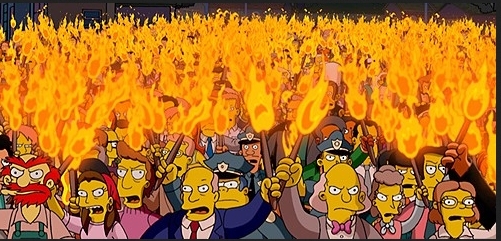
- "Someone please borrow me a Gun, I need to shoot -->"
- "Someone (HIV+) must rape this b**** and we'll see if her skin colour can protect her from AIDS."
Such tweets are painful to read and, of course, do nothing to teach a lesson, if that's the intent, of appropriate social media behavior.
The New York Times article explains the power of an Internet mob,
"...today's riots are different in that it is the powerful, specifically those with the largest followings online, that could help quell these eruptions, yet instead douse them with more anger and hate."
and continues:
"In the eyes of the mob, there was justice.
"Yet the people who threatened to rape and murder Ms. Sacco, who attacked her family and friends, aren't held in contempt or fired from their jobs."
As the social media cycle goes, people have come out in defense of Sacco: not to justify her tweet, which would be difficult, but to say that she's generally a nice person. Also, a friend relays a recent conversation in which Sacco said "people seemed to like the tweets that were just a little bit risqué or outrageous."
Discussion Starters:
- What's your view of The New York Times article? Should people who criticize so harshly also suffer consequences?
- This story reminds me of when Adam Smith was fired from his company after "berating" a customer service employee at Chick-fil-A. What similarities and differences do you see in these situations?
Communication Director Gets Fired After "I'm White" Tweet
Who knows what Justine Sacco, IAC executive, was thinking as she tweeted before boarding a plane to South Africa. As the senior director of corporate communications of a media and Internet company, Sacco should have known better. IAC owns sites such as Match.com, Ask.com, About.com, and Vimeo.
As expected, people were furious and, using the hashtag, #HasJustineLandedYet, anticipated her arrival at Cape Town International Airport. Sporting sunglasses, she clearly knew she was getting her 15 minutes of fame.
IAC responded via email to news sources:
"The offensive comment does not reflect the views and values of IAC. We take this issue very seriously, and we have parted ways with the employee in question.
"There is no excuse for the hateful statements that have been made, and we condemn them unequivocally.
"We hope, however, that time and action, and the forgiving human spirit, will not result in the wholesale condemnation of an individual who we have otherwise known to be a decent person at core."
The story could have ended there, but in-flight Wi-Fi provider Gogo used the incident for marketing purposes.
This, too, turned out to be a bad decision, and the company apologized.
Discussion Starters:
- Try to imagine Sacco's position. How would you describe what happened from her perspective?
- I don't see an apology from Sacco. Should she write one and, if so, what should it say?
- Not everyone agreed that Gogo's tweet was a poor choice. One tweeter wrote, "Most 'real-time marketing' is pretty weak and exploitive, but I do have to hand it to Gogo!" What's your view?










